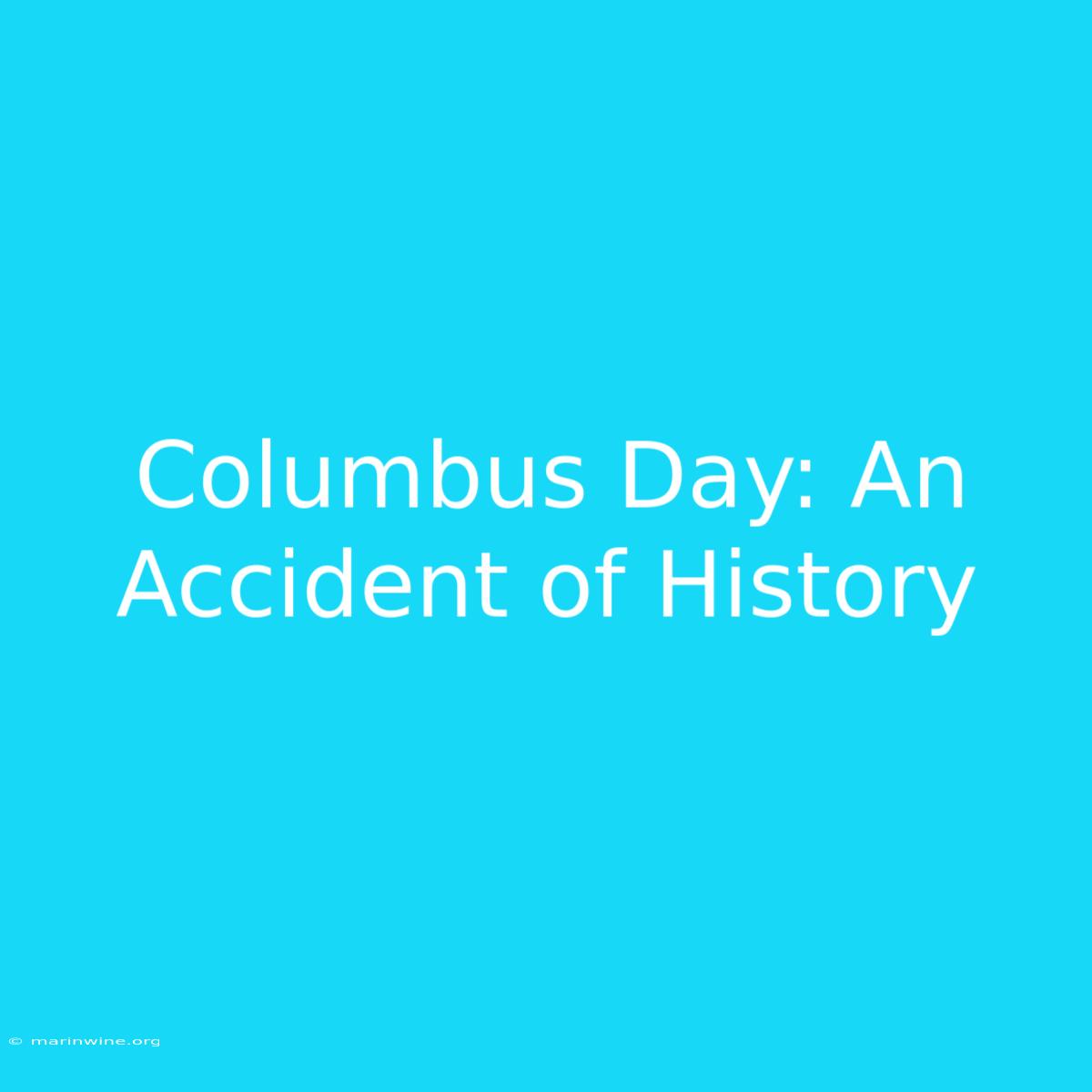Columbus Day: An Accident of History
Editor's Note: This article explores the complex history of Columbus Day, acknowledging its controversial nature and highlighting the need for a more inclusive understanding of its origins.
Why is Columbus Day a topic of debate?
Columbus Day, celebrated annually on the second Monday of October, commemorates the arrival of Christopher Columbus in the Americas in 1492. However, the celebration has become increasingly controversial due to its problematic portrayal of Columbus and its disregard for the indigenous populations already inhabiting the Americas.
A Closer Look at Columbus:
While Columbus is often depicted as a hero, his arrival marked the beginning of a devastating period for Native Americans. His voyages initiated the colonization of the Americas, leading to widespread enslavement, disease, and cultural destruction. Moreover, his actions were driven by greed and a desire for wealth, not by the noble intentions often attributed to him.
Reframing the Narrative:
The celebration of Columbus Day often ignores the perspective of Indigenous peoples. It overlooks their rich history, sophisticated civilizations, and enduring cultures that existed long before Columbus arrived. Instead of focusing solely on Columbus's arrival, it's crucial to acknowledge the ongoing legacy of colonialism and its impact on Native American communities.
The Need for Change:
In recent years, there has been a growing movement to replace Columbus Day with Indigenous Peoples' Day. This shift recognizes the importance of honoring the heritage and resilience of Native Americans and acknowledging the devastating impact of colonization.
Understanding the Past to Shape the Future:
Examining Columbus Day's history helps us to critically evaluate our historical narratives. It forces us to confront the complexities of the past and understand how these events continue to shape the present. By acknowledging the injustices inflicted upon Indigenous populations, we can strive for a more inclusive and equitable future.
Key Takeaways:
- Columbus's arrival was not a benevolent discovery, but a violent and exploitative event.
- The celebration of Columbus Day often overlooks the history and culture of Indigenous peoples.
- The movement to replace Columbus Day with Indigenous Peoples' Day reflects a growing awareness of the need for a more inclusive understanding of history.
Moving Forward:
Instead of celebrating a single individual, it's crucial to acknowledge the complex history of the Americas. By embracing a more inclusive perspective, we can create a more accurate and just understanding of the past and work towards a future where the rights and contributions of Indigenous peoples are recognized and respected.

